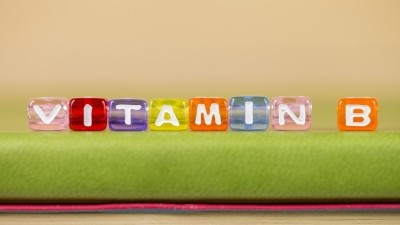Editor's Spotlight
Regulatory Review: Supplement seizures, the dangers of SARMs and black salve, and infant formula proposals

Nootropics and SARMs seized in Australia as TGA continues investigation into unlicensed health products
The growing popularity of nootropics and sports nutrition supplements is leading to a boom in unlicensed products being sold online, with Australia's Therapeutic Goods Administration (TGA) recently seizing a raft of items.
The regulatory body announced that in conjunction with the NSW Police, Australian Federal Police (AFP), Australian Taxation Office (ATO) and NSW Health, it had executed four search warrants for a business operating in Sydney that was suspected of selling unapproved nootropic supplements and selective androgen receptor modulators (SARMs).
The operation was part of an ongoing investigation into the alleged import, advertising and supply of unauthorised therapeutic products; most recently, the involved regulators had seized black salve and blood root supplements.
Burning the stomach wall: Expert rounds on dangerous black salve and bloodroot products to 'treat' cancer
Australia's Therapeutic Goods Administration's (TGA) recent seizure of unlicensed bloodroot and black salve supplements has highlighted a dangerous emerging trend for unlicensed 'natural' products that claim to help fight cancers.
Along with the Queensland Police Services and Australian Taxation Office, the TGA executed a search warrant at a business premises Queensland in May and seized 27 jars of bloodroot salve (commonly known as black salve), 84 bottles of Triple-Strength Bloodroot Capsules, and 30 bottles of Double-Strength Bloodroot Capsules.
This operation was part of a wider ongoing investigation into the alleged unauthorised import, marketing and distribution of unlicensed therapeutic health products, with several devices associated with the manufacture of such goods also confiscated.
Two goals, 10 action plans: China Communist Party and state council outline first joint food safety plans
China has outlined a set of food safety proposals to achieve two main goals: to ensure that 98% of all products fulfil spot-check requirements by 2020, and that the nation's food safety standards will be regarded as the world's best by 2035.
This is the first time a food safety proposal has been released by both the central committee of the Communist Party and the state council.
By next year, more than 97% of China's agricultural products should pass food safety inspection, while more than 98% of its food products should fulfil spot-check requirements, officials said.
Infant formula in India: FSSAI proposes regulations for products with special medical purposes
The Food Safety and Standards Authority of India (FSSAI) has issued a notification on a draft regulation for infant nutrition safety standards, calling for industry stakeholders to submit their comments.
The draft details more comprehensive regulatory measures as an update to the existing 2011 regulations, covering standards for infant formula for special medical purposes, particularly food for infants with inborn errors of metabolism (IEM).
While most nutritional products for infants with IEM are imported into India, the FSSAI's proposed regulatory changes would make it possible for such products to be manufactured locally.
Nestlé seeks to lower minimum protein content in Australia and New Zealand follow-on formula
Nestlé has applied to Food Standards Australia New Zealand (FSANZ) to reduce the minimum protein requirement for milk-based follow-on formula in the Australia and New Zealand Food Standards Code.
The application came specifically from Nestlé Australia and Nestlé New Zealand, which want to lower the minimum protein requirement in follow-on formula (designed as complementary food for children aged six to 12 months) from 0.45g per 100kJ to 0.38g.
The company has supported this decision by referencing the Infant Feeding Guidelines by the National Health and Medical Research Council (NHMRC), adding that the suggested protein levels are closer to those in breastmilk, which tend to be naturally lower when the infant is between six and 12 months of age.



















